Have you ever found yourself torn between two equally captivating musical instruments? The eternal debate between learning guitar or piano has left many aspiring musicians pondering which path to embark on. Both instruments possess their own unique charm and allure, making the decision all the more challenging. But fear not, dear music enthusiast, for this ultimate guide shall illuminate the hidden harmonies and reveal the secrets of mastering either the guitar or piano. So sit back, relax, and embark on a melodious journey through the intricate world of music.
What Are the Technical Differences Between Learning Guitar and Piano?
Learning guitar and piano have some fundamental similarities, such as the ability to learn scales and chords. However, there are also some significant technical differences between the two instruments that can affect how quickly a student learns them.
Another difference between guitar and piano involves chords and dynamics. On a guitar, chords involve playing multiple notes at the same time, which can be difficult to grasp for a beginner. Playing chords on a piano also requires coordination, but it is slightly easier since you don’t have to press multiple strings at once. Additionally, dynamics are much more varied on guitar due to its large range of tones and sounds.
Finally, there are various techniques involved with both instruments that require practice to master. For guitar, this includes things like fingerpicking, hammer-ons and pull-offs, slides, and strumming patterns. Piano techniques include arpeggios, legato playing, trills, and other improvisational styles.
Overall, learning either instrument requires dedication and practice to become proficient. However, with the right attitude and guidance, both guitar and piano can be rewarding instruments to learn. With time and patience, any student can become an expert in either instrument.
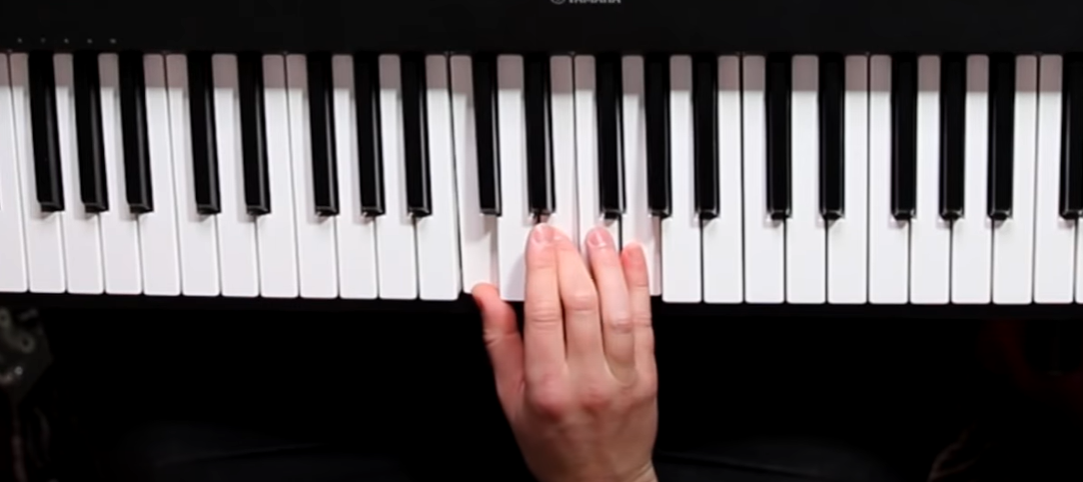
Guitar vs Piano: Similarities
They’re both string instruments
The strings of a guitar and piano are what make them truly distinctive among other musical instruments. These strings, carefully chosen for their unique properties, possess the ability to vibrate and produce mesmerizing sounds when they are delicately struck, gently plucked, or energetically strummed with either the hand or a pick. While guitars boast strings made of finely crafted metal, pianos showcase strings meticulously composed of wire expertly wrapped in layers of lustrous copper. Despite their contrasting materials, both types of strings fulfill the same purpose of translating musical notes into captivating melodies when skillfully played by talented musicians.
You can play more than one note at the same time
Playing a guitar or a piano can involve playing more than one note at the same time. This is known as an “accompanying” sound, where the harmonious fusion of multiple notes creates a rich and vibrant musical texture. It not only enhances the depth and complexity of both instruments but also adds a captivating layer of expression to the music being played. This versatile ability to produce multiple notes allows these instruments to serve as invaluable accompaniment in bands and ensembles, effortlessly complementing other instruments and adding a melodic foundation to the overall sound. Furthermore, the guitar and piano, with their remarkable versatility, can also take center stage as the main focal point of a musical piece, captivating listeners with their captivating melodies and intricate harmonies.
Both instruments can be used to create different genres
The guitar and piano are two of the most widely used instruments in contemporary music, and they can both be used to play a variety of styles. Both instruments have been used in jazz, rock, folk, pop, classical, blues and country music. While some may argue that one instrument works better in certain genres than another, it’s clear that both instruments can be used to create a variety of different sounds and styles.
They both require practice to develop skills
If you want to become proficient on the guitar or piano, you will need to put in time and effort. Both instruments require dedication and practice if you want to reach a level of proficiency. While the guitar may take less time to master compared to a piano, both instruments still require hours of practice to become proficient.
Both instruments require left-right hand coordination
Playing the guitar or piano requires the use of both hands. The right hand is usually used to strum, pluck or play notes on the fretboard of a guitar or keys of a piano. The left hand is typically used to form chords and melodies. Learning how to coordinate both hands can be difficult at first, but with practice, it will become second nature.
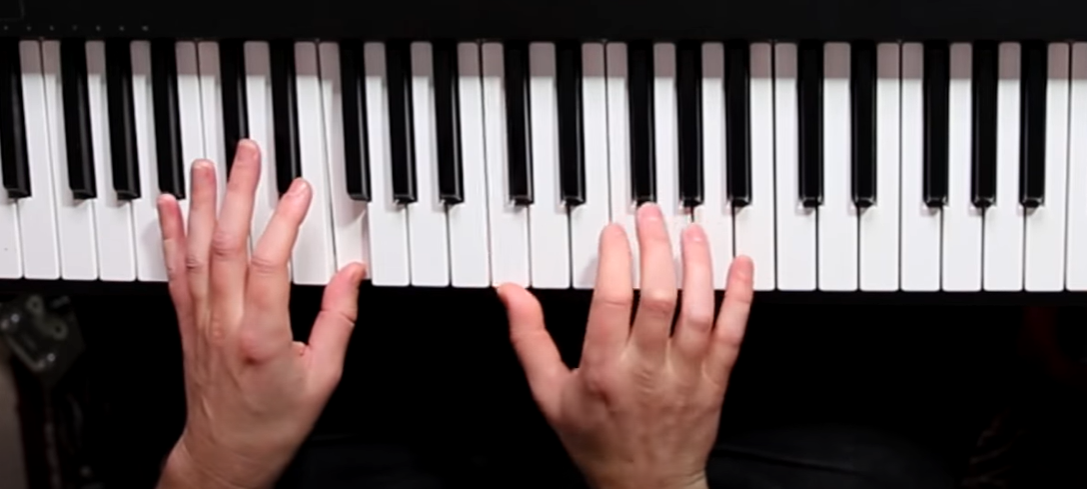
Piano and guitar are both excellent instruments for beginners
The guitar and piano both make great instruments for beginners. They are relatively easy to learn compared to other instruments, and they don’t require a lot of expensive equipment or setup. They are also versatile instruments that can be used in many different genres of music. As such, they make excellent choices for those just starting out on their musical journey [1].
Guitar vs. Piano: Differences
Layout is completely different
Guitars, with their plucked or strummed strings, and pianos, with their keys that press small hammers onto strings, offer distinct playing experiences. These differences lead to completely different techniques required to master each instrument.
When playing the guitar, aspiring musicians must learn how to smoothly transition between chords and strum diverse patterns using their right hand. Meanwhile, the left hand is responsible for pressing down on the strings to produce the desired notes.
On the other hand, pianists utilize both hands to press down on the keys, creating a symphony of notes and chords. The coordination required to play the piano involves a unique interplay of both hands, resulting in a rich and harmonious sound.
Whether strumming a guitar or tickling the ivories of a piano, both instruments offer their own set of challenges and rewards, making them captivating choices for musicians seeking diverse musical expressions.
Standard notation vs. tablature
When reading music, guitars often use tablature, a number-based system that indicates finger placement on the fretboard. This simplified approach allows guitarists to quickly grasp where to position their fingers for each note. On the other hand, piano notation employs standard notation, requiring players to read note names and rhythms more traditionally. This comprehensive system enables pianists to develop a deeper understanding of the intricate relationship between various musical elements, including chords and melodies, thus enhancing their musical proficiency and versatility.
On tuning and tone
Guitars need to be frequently tuned since the strings can loosen over time. This is because the tension in the strings gradually decreases, affecting the pitch and overall sound quality. On the other hand, pianos are self-tuning instruments because their strings are under constant tension from the piano’s mechanism, which helps them stay in tune for longer periods without the need for frequent adjustments.
In terms of tone, guitars typically have a sharper sound with more distinct notes that stand out from one another. The plucked strings of a guitar produce a vibrant and resonant sound that can vary depending on the type of guitar, strings used, and playing technique. On the other hand, pianos tend to have a warmer sound due to the vibrating strings that create a reverberation effect. The hammers striking the strings in a piano produce a rich and sustained sound, encompassing a wide range of frequencies.
The differences in tuning and tone between guitars and pianos contribute to the unique character and versatility of these two beloved instruments, making them cherished by musicians and enthusiasts alike.
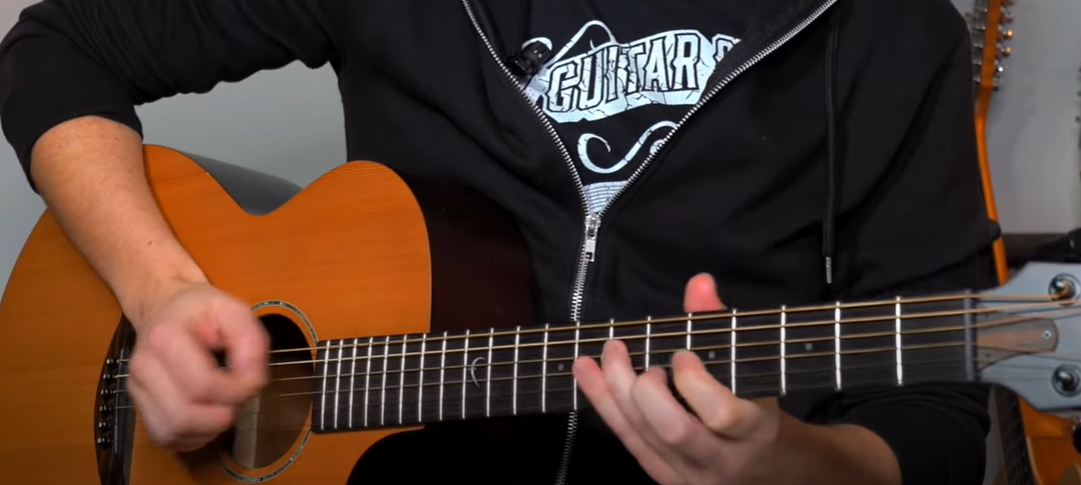
Guitar is a more social instrument
Due to its portability, guitars are a great instrument to play with others. It is easy to jam out with other guitar players or accompany singers. Pianos are usually larger and heavier than guitars which makes them less convenient for group performances. Additionally, pianos require more specialized knowledge of chords, scales, and musical theory to be played properly.
One-time purchase vs. continuous gear acquisition
When it comes to buying a musical instrument, guitars are usually more budget-friendly and readily available compared to pianos. Not only that, but guitarists often need to invest in additional gear such as amplifiers, pedals, cables, and strings, which can add up in terms of expenses over time. On the other hand, purchasing a piano is typically a one-time investment that does not require any further purchases. This makes pianos a more cost-effective option in the long run, as they eliminate the need for ongoing expenses and maintenance. Additionally, pianos offer a timeless and elegant aesthetic that can enhance the ambiance of any space, while guitars provide a versatile and portable option for musicians on the go. So, whether you prioritize affordability and versatility or long-term cost-effectiveness and classic appeal, both guitars and pianos offer their own unique advantages to suit different musical preferences and needs.
Overall sound
The overall sound of a guitar is often softer and more intimate than that of a piano. On the other hand, pianos are louder and have an expansive range of tones due to their ability to produce both high and low notes at the same time. This makes it easier for composers to create complex arrangements with a full sound [2].
Which is easier to learn, piano or guitar?
Learning vs. Mastery
It is difficult to say if one instrument is easier to learn than the other- while it might be quicker and more intuitive for some people to pick up the basics of guitar, others may find that piano comes more naturally. Ultimately, both instruments require dedication and practice in order to master them. Piano offers a wide range of musical possibilities with its two manuals, various pedal techniques, and nuanced dynamics; guitar provides a unique sonic palette of sound through its open strings and fretboard configurations. Both instruments are capable of producing beautiful music, and the decision of which to learn is up to the individual’s interests and goals.
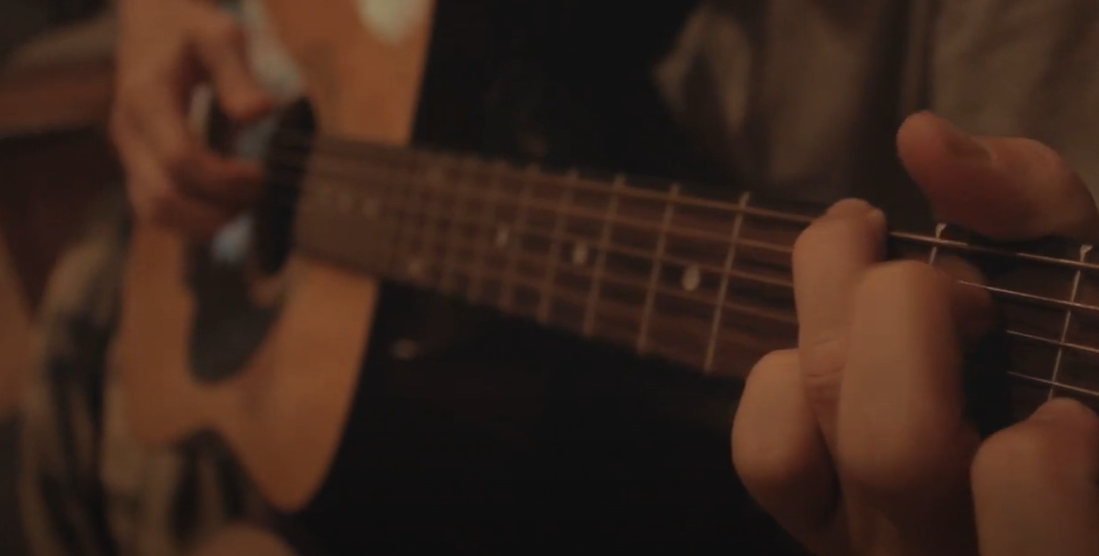
The Power of Chords
The piano is great for learning the basics of musical theory, such as scales and chord structures. This knowledge can be applied to both instruments, but guitarists tend to rely heavily on chords in their playing- something that comes naturally to players who have learned chords and progressions on the piano. Experienced pianists may find it easier to switch to guitar than novice guitarists, as the chord shapes on guitar are much more intuitive when learned from a piano perspective.
The Keyboard Advantage
The piano has an advantage over the guitar in that it provides a visual reference to help players understand music theory. Notes are specifically laid out on the keyboard, making it easier for players to visualize notes, scales and chords. This same idea is also present on the guitar’s fretboard but can be harder to pick up for beginners due to its complexity. Additionally, certain techniques such as two-handed arpeggio patterns and sweeping licks are easier to execute on a piano than on a guitar, due to its larger range of notes.
The Benefits of Learning Both
Ultimately, each instrument has its own unique benefits and drawbacks. Learning both can open up new possibilities in music-making, allowing for the combination of different sounds and techniques to create something truly special. Whether someone wants to learn one or both instruments, the best advice is to simply follow their passions and practice as much as possible. With enough dedication and a willingness to learn, anyone can become an expert on piano or guitar (or both!). Who knows- perhaps one day you could even be the next great virtuoso [3]!
Piano vs. Guitar: How to Choose Between the Two
Many aspiring musicians are often caught between choosing a piano or guitar as their first instrument. While both instruments have unique advantages and different sounds, the decision ultimately comes down to personal preference.
In terms of sound production, each instrument has its own distinct personality. Pianos produce a rich and powerful tone that many aspiring musicians find appealing. Guitars on the other hand, give the musician more control over the sound. From strums to chords, a good guitar can create a wide range of tones and rhythms.
When choosing between piano or guitar, there are several factors to consider including budget, space availability and style preference. If cost is not an issue and you have enough space at home for either instrument, then go with the one that you feel more comfortable and excited about. If you’re still undecided, it might be worth taking a few lessons to try out each instrument before making your final decision.
No matter which instrument you choose, both the piano and guitar will provide years of musical enjoyment, with challenging songs to master and exciting performances to look forward to. And if ever you find yourself itching to try out the other instrument, nothing is stopping you from learning it too! Ultimately, music is all about exploring your creativity and having fun – so don’t forget to enjoy the journey [4].
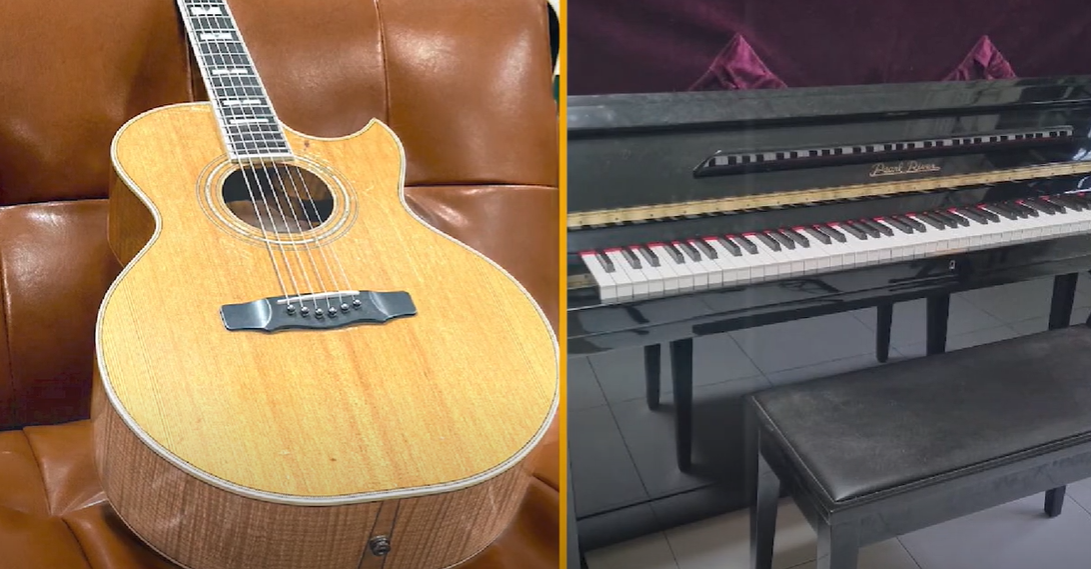
Tips for Starting An Instrument Easy and Enjoyable
When it comes to playing an instrument, practice makes perfect. That being said, the more you enjoy your practice sessions and make them easy to follow, the easier it will be for you to develop your skills. Here are some tips that can help you get started on the right foot:
- Choose an instrument that appeals to you. Whether you’re drawn to the sound of a guitar or the rhythm of drums, make sure you choose an instrument that you’ll actually want to practice.
- Start slow and build up gradually. If you’re just starting out, it’s best to focus on basic techniques first before tackling more challenging pieces or songs.
- Find good online tutorials. There are plenty of useful online tutorials that can help you learn the fundamentals and even teach you how to play specific pieces.
- Set a practice schedule. To progress, it’s important to set aside time each day or week dedicated just to practice. Make sure you stick to your schedule to make steady progress.
- Get proper instruction. While there is plenty of material available online, nothing beats having an experienced instructor show you the ropes. A good teacher can give you personalized instruction and help you develop your technique further.
- Join a community of musicians. Playing with a group or even just talking to other musicians can be great for motivation and inspiration. You never know what tips and tricks they may have up their sleeve!
FAQ
Should I learn guitar or piano first?
This is a difficult question to answer because it depends on the individual. Generally speaking, both guitar and piano can be learned relatively easily; however, many people find that they may have more success learning the guitar first due to its smaller number of notes and chords when compared to the piano. Additionally, most popular songs are written in standard tuning for guitars, making it easier to play songs that you may already know. Ultimately, it comes down to personal preference and which instrument feels more natural for the individual.
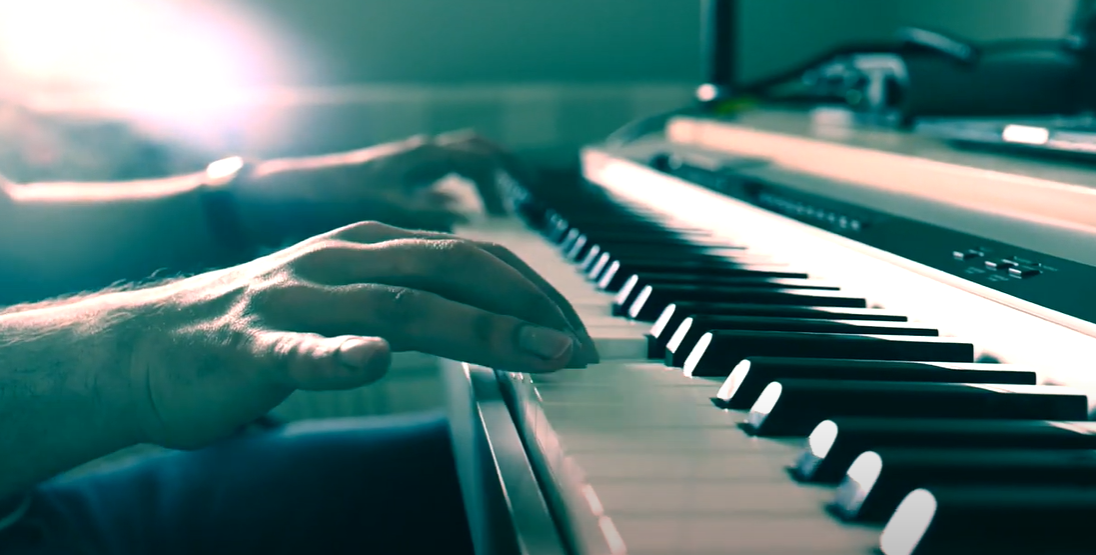
Which is harder to learn: piano or guitar?
Both piano and guitar can be quite challenging to learn, but they both require different types of skills. For example, the piano requires greater precision and accuracy when playing notes, as each key must be pressed with perfect timing. On the other hand, guitars involve coordination between hands and fingers; for instance, chords must be strummed in a certain way for them to sound correct. Additionally, many guitarists will need to learn how to read tablature to play songs accurately. Ultimately, both instruments can be quite challenging and it all comes down to the individual’s skill level and preference.
Is it easier to learn a keyboard or guitar?
Similar to the previous question, this depends on the individual. Generally speaking, keyboards are simpler to learn compared to guitars due to their straightforward layout and lack of chords or strumming technique. Additionally, many keyboard models come with built-in sounds and features that may help learn how to play a basic melody or song. On the other hand, guitars can often be more satisfying to learn since they can produce a wide range of sounds and may require less technical knowledge than keyboards. Ultimately, it all comes down to personal preference and individual skill level.
How long does it take to learn guitar?
This depends on the individual and how much time they dedicate to practicing. For those who are already experienced in musical instruments, it may take only a few weeks or months to learn basic guitar-playing techniques such as chords and strumming. However, for those who are completely new to music, it can take several months or even years of regular practice before being able to play more complex songs or techniques. Additionally, the type of guitar being learned can also influence the learning curve; for instance, electric guitars require additional knowledge of amplifiers and other effects to produce a desired sound.
What type of guitar should I learn on?
The type of guitar that is best for learning will depend on the individual. Generally speaking, acoustic guitars are often recommended as a first instrument due to their simple design and lack of additional features such as amplifiers or effects. Additionally, they tend to be more affordable compared to electric guitars, making them perfect for those who are just starting out. However, if an individual has already had experience with other instruments, then an electric guitar may be a better choice due to its wider range of sounds and features. Ultimately, it all comes down to personal preference and individual skill level.
What kind of music can I learn to play on guitar?
The guitar is a very versatile instrument and can be used to play many different genres of music such as rock, pop, jazz, blues, classical, and more. Additionally, it can also be used to play different styles of music such as fingerstyle, strumming, and lead guitar techniques. Many guitarists will also learn to read traditional musical notation or tablature to accurately play songs from a wide variety of genres and eras. Ultimately, the type of music that an individual chooses to learn on the guitar will depend on their personal preference and individual skill level.
What is the easiest instrument to learn?
The easiest instrument to learn will depend on the individual. Generally speaking, many people find that the piano is one of the simplest instruments to learn due to its straightforward layout and lack of chords or strumming technique. Additionally, many digital pianos come with built-in sounds and features that may help those who are new to music. Alternatively, if an individual has had experience with other instruments, then an electric guitar may be an easier option due to its wider range of sounds and features. Ultimately, it all comes down to personal preference and individual skill level.
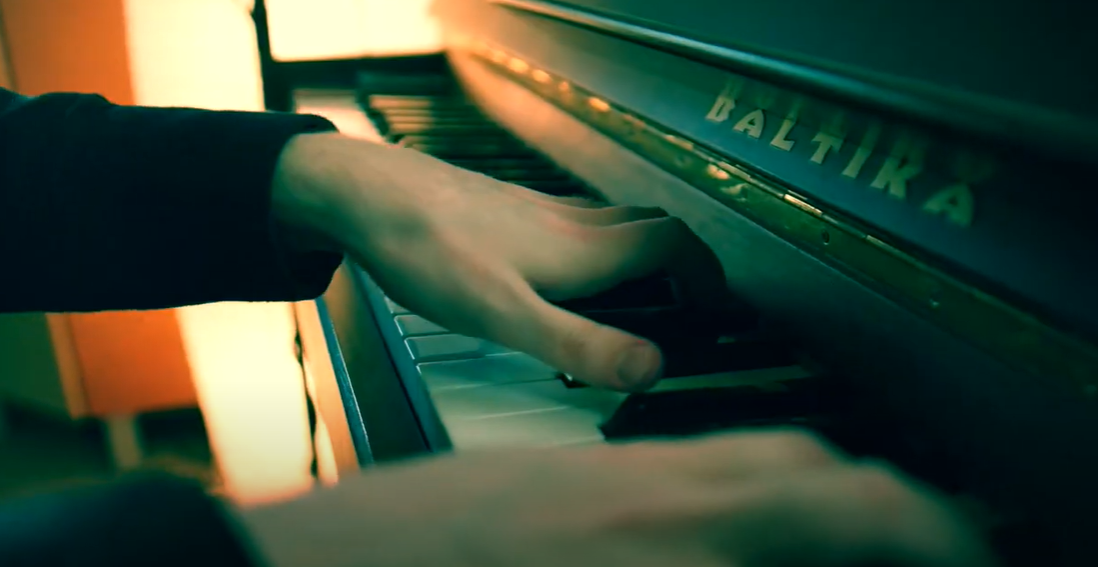
What is the #1 hardest instrument to learn?
It is difficult to say which instrument is the most difficult to learn, as this will depend on the individual and their skill level. Generally speaking, many people find that instruments such as the violin or cello require greater precision and accuracy when playing notes, making them difficult for those who are new to music. Additionally, more complex instruments such as the piano may pose a challenge due to its wide range of notes and chords. Ultimately, it all comes down to personal preference and individual skill level. No matter the instrument, with dedication and practice anyone can learn to become a proficient musician.
Why is it important to learn music?
Learning music can be an incredibly rewarding experience for many people. It can help boost creativity and provide a healthy outlet for self-expression. Additionally, learning music can also help improve cognitive skills such as memory, coordination, and problem-solving. Moreover, musical instruments are often used in group settings and can help develop teamwork and communication skills. Ultimately, learning music can provide many benefits and is a great way to express oneself creatively.
Useful Video: Guitar OR Piano – Is one EASIER?
Conclusion Paragraph
So, if you are deciding between guitar and piano, the best choice for you depends on your individual goals. If you want to take up an instrument just for fun or as a hobby, then the guitar is probably going to be more enjoyable and easier to learn. However, if you have bigger dreams of becoming a professional musician or composer, the piano will likely give you the head start that you need. Regardless of your choice, both instruments offer a wealth of music-making possibilities and can help you develop unique skills that will last a lifetime.
References:
- https://www.pianote.com/blog/guitar-vs-piano/
- https://www.singaporepianohub.com/post/guitar-vs-piano-which-should-you-learn-first
- https://findyourmelody.com/easier-to-learn-guitar-or-piano/
- https://spinditty.com/learning/Guitar-vs-Piano-Difficulty-Difference-and-How-to-Choose




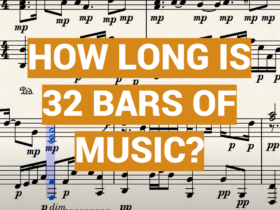
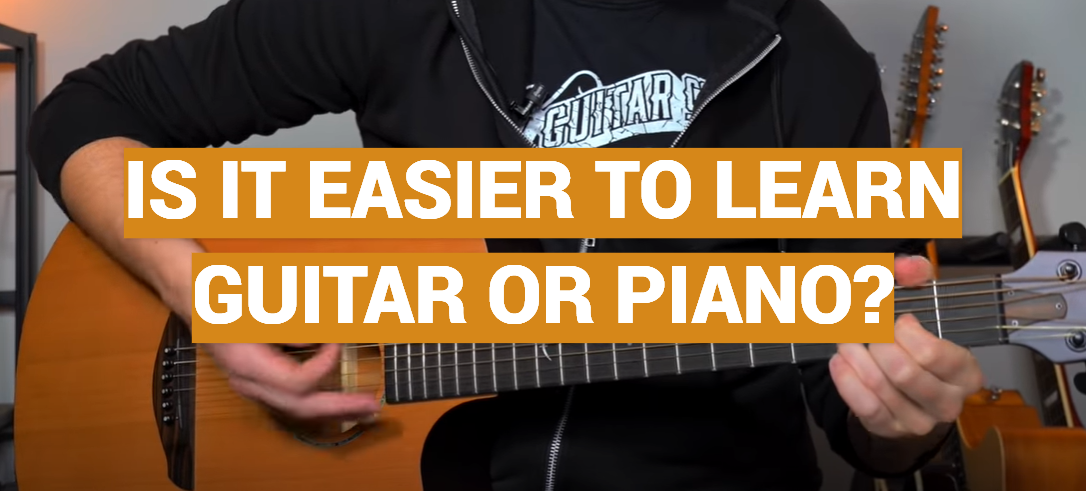

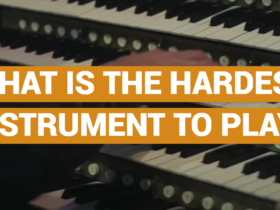


Leave a Reply